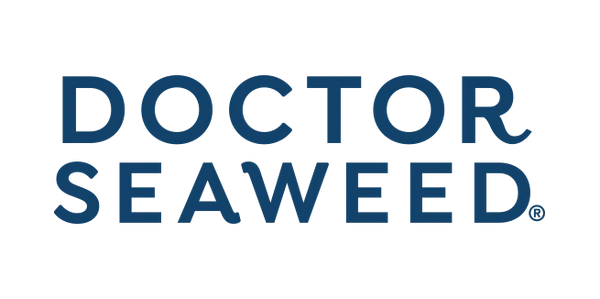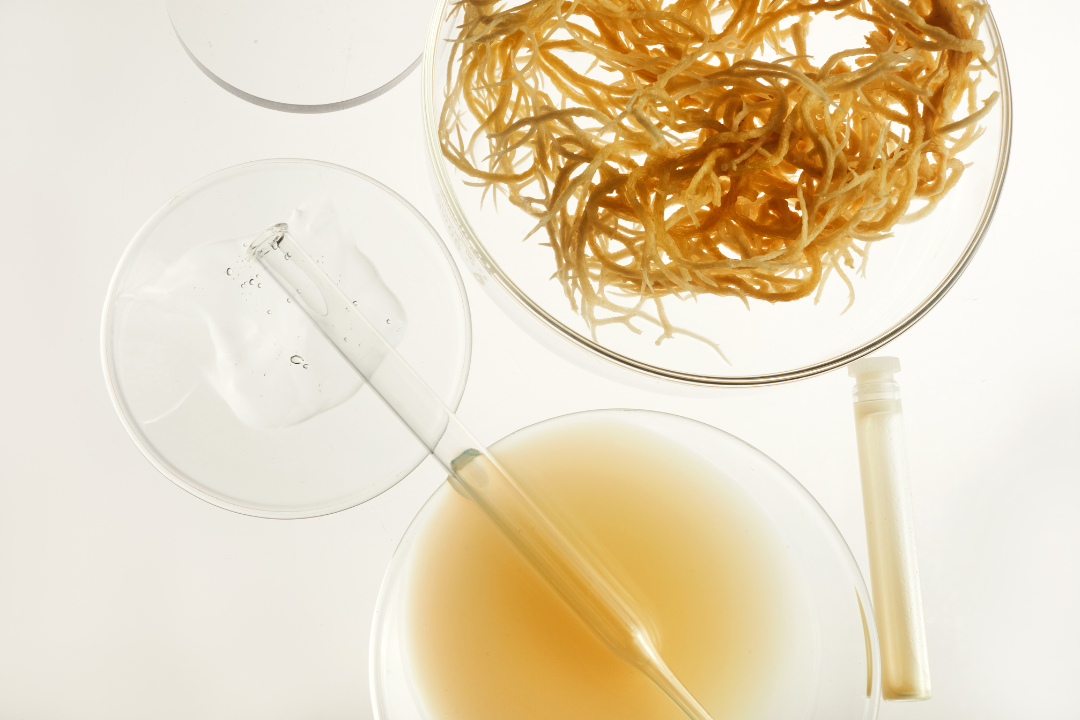Sea Moss has recently taken TikTok by storm, with over 250 million viewed searches of the hashtag #seamoss. Many health-conscious individuals are seen spooning mouthfuls of this gel or adding it to smoothies and other recipes.
But why has sea moss gained such sudden popularity? We asked Dr. Craig Rose PhD aka. Doctor Seaweed exactly what sea moss is, and how it differs from other types of seaweed.
Sea moss vs seaweed
Globally, there are around 10,000 different types or species of seaweed. They are all in the wider group called algae, and the seaweeds are the marine macro-algae (or the big algae that grows in the sea!).
Of all these seaweeds, they are split into groups of brown (Phaeophyceae), green (Chlorophyta) and red (Rhodophyta).
Sea moss is a specific type of seaweed in the red group, also known as irish moss or carrageen moss. The products from sea moss that are becoming very popular are mainly extracts from the sea moss, and are powders or gels and jellies made from the carrageenan (a type of polysaccharide) which is used as a thickener in many products.
The benefits of sea moss are varied, and full of potential, however these benefits are largely subjective as there are still few approved health claims. The benefits include improved digestive health, immunity, heart health and blood sugar management. With the uptake by some celebrity influencers such as Kim Kardashian, products have rapidly emerged on the market although there is still much research to come to validate these benefits.
"It is always important to consider the quality and provenance of the seaweed products you consume. Whole food seaweed ensures superior nutrient absorption compared to extracts."
As always with seaweeds, and any products you eat, making sure the source and quality is well known and to the highest standard is a must. Sea moss can often carry heavy metals such as mercury and lead when grown in areas that do not account for pollution. It is always important to consider the quality and provenance of the seaweed products you consume.
The benefits of seaweed
Seaweed is a far broader term, and generally seaweeds are naturally rich in key minerals. One specific species, Ascophyllum nodosum, also known as knotted wrack, is a natural source of essential iodine. This nutrient is key and has scientifically approved claims for supporting your thyroid health, energy and metabolism, nervous system, skin health, and brain health and function. It is also critical in the normal development of babies during pregnancy and for children as they grow. More recent research shows it is needed pre-pregnancy too to help with conception as well as supporting women during perimenopause and menopause.
Furthermore, this species has specific polyphenols that help to manage blood sugar release, which can benefit weight management and keeping fuller for longer.
Dr Craig Rose, aka Doctor Seaweed, is a marine biologist who has developed his award-winning range of natural seaweed supplements all based around sustainable and organic Scottish seaweed. The range offers multiple benefits with the products with additional natural and plant-based nutrients – all rooted in nature and backed by science.

Whether you're looking to boost your energy levels, support your brain health, improve the appearance of your skin or just simply introduce high quality nutrition into your diet, Doctor Seaweed's range of nutritional seaweed supplements can help support your health and wider wellness goals.
To discover the wonder of seaweed for yourself, click here to view the range.
Are you unsure which product is best for you? Take our 20 second quiz linked here which will help you determine which supplement is suitable for you based on your current iodine intake and your wellness goals.


1 comment
Which is better for hair growth